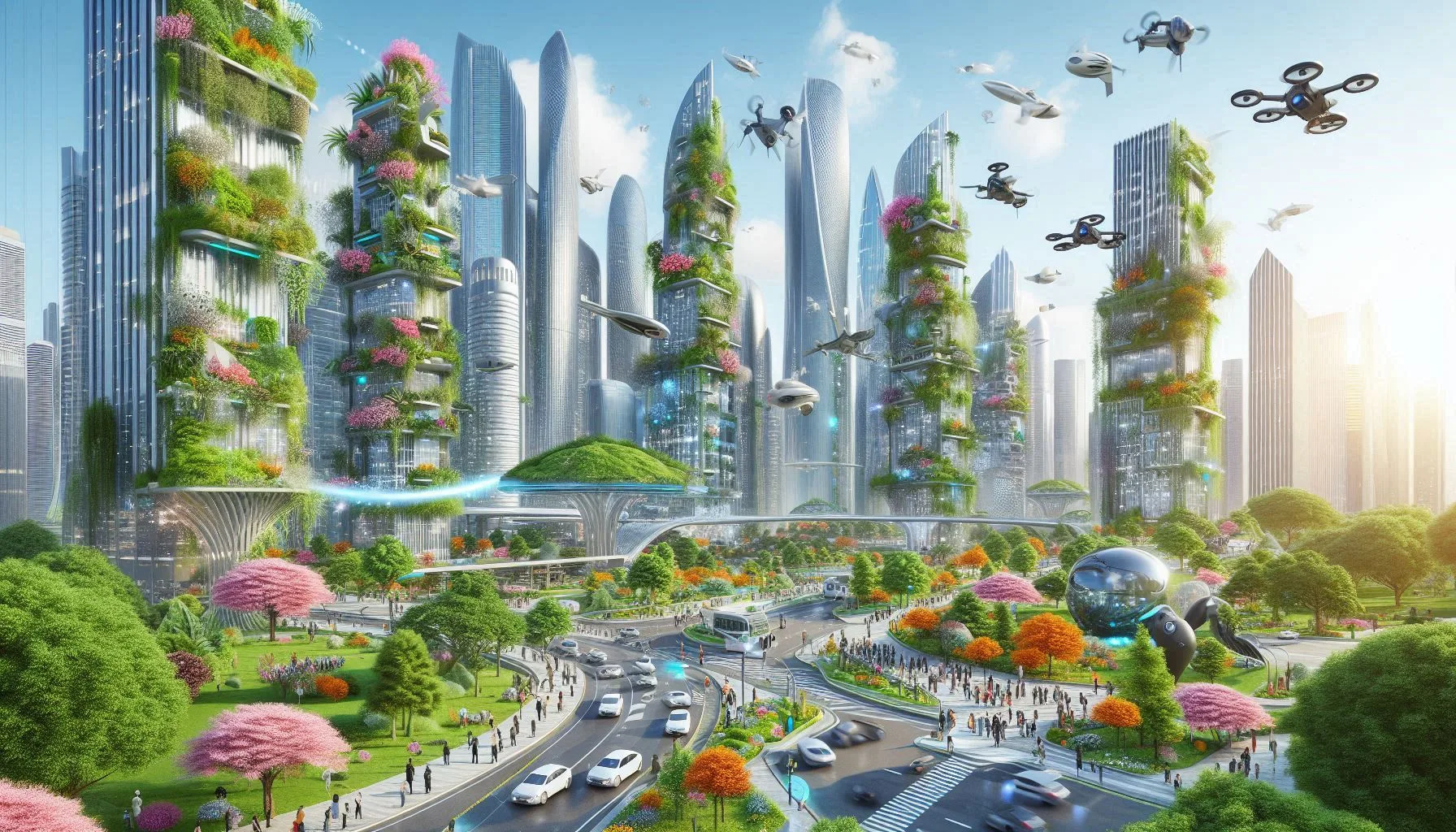Smart cities represent a new vision for urban living, where advanced technology enables efficient, sustainable, and improved quality of life for residents. Artificial intelligence (AI) lies at the heart of this evolution, optimizing everything from public transport and energy use to healthcare and security. This article explores the journey of smart cities and AI’s pivotal role in transforming urban landscapes.
A Brief History of Smart Cities
The smart city concept has evolved alongside rapid technological advances. Initially, urban centers implemented basic data-collecting devices like CCTV cameras or traffic lights with simple automation. Over time, cities introduced Internet of Things (IoT) devices that helped gather massive amounts of data, laying the groundwork for today’s AI-integrated smart cities.
How AI is Transforming Modern Cities
1. Traffic Management and Public Transport
- AI in Traffic Prediction and Control: AI-powered traffic prediction systems can process real-time data to adjust traffic light timings, helping reduce congestion.
- Public Transportation Optimization: AI enables real-time tracking and predictive maintenance, which reduces downtime and increases efficiency in public transit systems.
2. Energy Efficiency and Resource Management
- AI-Driven Energy Consumption Models: AI models forecast energy demand, allowing for a balanced load distribution that saves resources and cuts costs.
- Water and Waste Management: AI aids in waste collection route optimization and water resource management by predicting peak times and reducing wastage.
3. Smart Healthcare
- AI in Public Health Monitoring: AI enables real-time health tracking through wearables and sensors, which can help predict outbreaks and monitor disease spread.
- Enhanced Emergency Response Systems: AI-driven analytics ensure faster emergency response by predicting where accidents or health emergencies are more likely to occur.
4. Public Safety and Security
- AI Surveillance Systems: Facial recognition and behavioral analytics, powered by AI, support security efforts by alerting authorities to potential threats in real time.
- Crime Prediction and Prevention: AI analyzes historical crime data to predict high-risk areas, enabling proactive policing measures.
5. Environmental Monitoring and Sustainability
- AI in Air and Water Quality Management: Sensors connected to AI systems can measure pollutants in the environment, alerting authorities when levels exceed safe thresholds.
- Climate Resilience Planning: AI assists in modeling and managing urban environments against extreme weather events, helping cities adapt to climate change.
Benefits of AI-Powered Smart Cities
1. Improved Quality of Life
- Accessible and Efficient Services: AI enhances city services, making them more responsive and accessible to residents.
2. Economic Growth and Job Creation
- Innovation Hubs: AI-driven smart city projects attract businesses and foster innovation, creating new jobs and driving economic growth.
3. Environmental Impact Reduction
- Lower Carbon Footprint: By optimizing resource use, AI in smart cities helps reduce the carbon footprint.
Challenges in Implementing AI in Smart Cities
1. Data Privacy and Security
- Privacy Concerns: The collection and analysis of vast data raises concerns about citizen privacy.
2. High Implementation Costs
- Infrastructure Investment: Developing AI-driven smart city infrastructure requires significant initial investment.
3. Technical Limitations
- Data Integration and Processing: Integrating diverse data sources in real time presents challenges in standardization and reliability.
The Future of AI in Smart Cities
As technology advances, AI’s role in smart cities will expand. Future cities will likely incorporate quantum computing for faster data processing, advanced machine learning for more accurate predictive analytics, and stronger ethical frameworks for data management.
Conclusion
The integration of AI in smart cities marks a transformative period in urban development, improving efficiency, sustainability, and overall quality of life. As these technologies continue to evolve, smart cities will increasingly represent a model for future urban planning worldwide.




